Artificial intelligence can be used for good, but a recent trend from social media has started to take things a little too far.
On platforms such as TikTok and Instagram, AI is utilizing features that are typically associated with Down syndrome and morphing them into user’s faces — with most of the women using them for s–xual purposes while wearing barely any clothing.
The trend is used to drive engagement as the posts will often direct consumers to adult sites or OF accounts, seeing numbers of hundreds of thousands of views.
Artificial intelligence is now being used to morph features associated with Down syndrome on content creators for inappropriate purposes
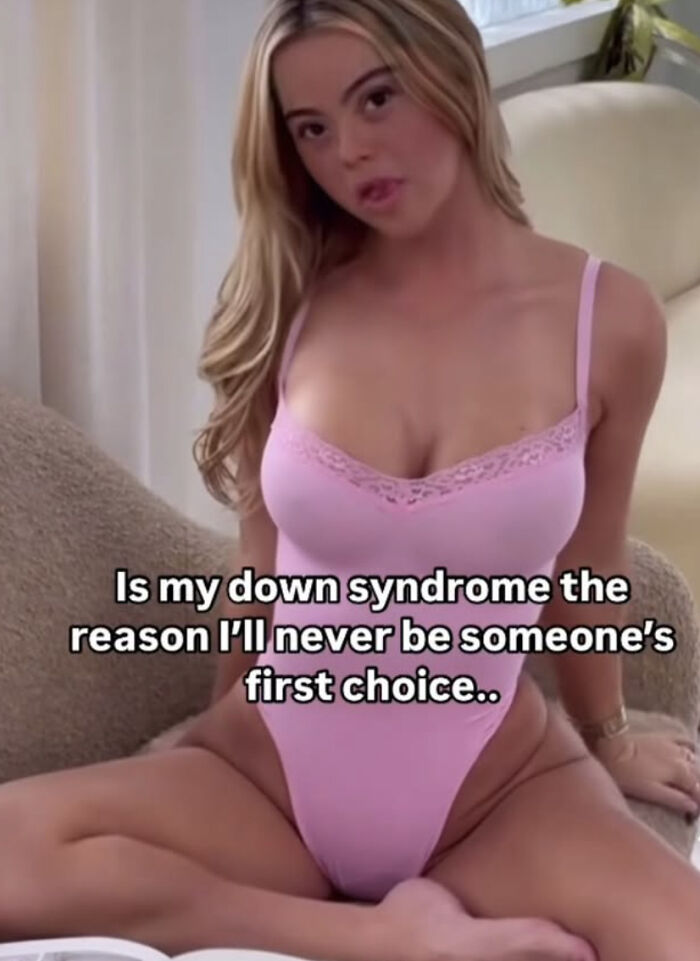
Image credits: bradtroemel / Instagram
One person on Instagram named Justin Ryan posted a woman wearing a tiny tank top and shorts while she posed for the camera, the AI filter superimposed on her features.
“Does having down syndrome change how you see me…” read her embedded text. Ryan fueled the engagement by reposting it and writing, “She’s so beautiful with down syndrome and I never seen a girl like that before.”
Instead of the comments calling them out, they agreed that the woman was someone special and cheered her on.
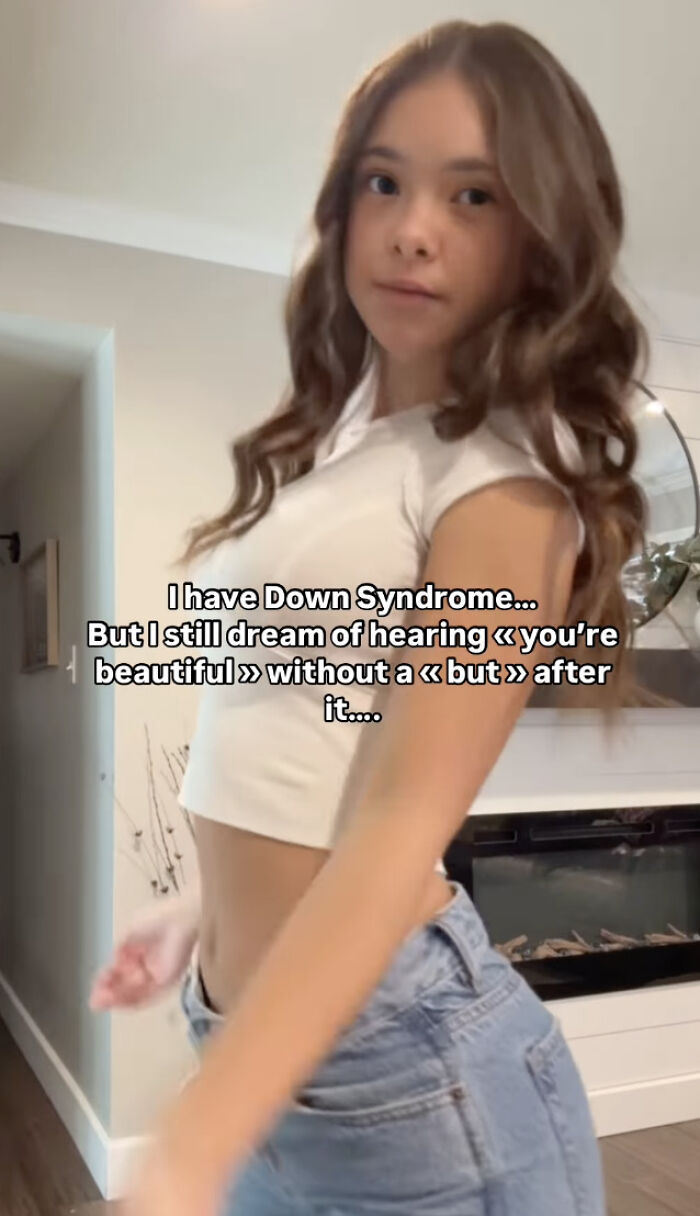
Image credits: ayelenmoods / Instagram
Other typical captions ask similar inappropriate questions like “Is Down syndrome a deal breaker for you?” or “Would you date a girl with Down syndrome?” as well as others that are far more explicit in their language.
But individuals with the disability or those who have worked closely with them are far less enthusiastic about the new trend.
Charlotte Woodward, a 35-year-old woman with Down syndrome told the New York Post, “It makes me feel a myriad of things. Not only do I find it disturbing, I find it personally upsetting. I also feel anger and outrage.”
As someone who works as a programs associate for the National Down Syndrome Society, Woodward has strong opinions that she and the people she wants to help are being put at harm’s way.
Image credits: Nik / Unsplash
“I just feel as if it’s putting people with Down syndrome at risk of s–xual ab–se and s–xual assault,” she explained.
According to the outlet, it is still unknown who started the initial trend, but most who participate have been stealing the faces of adult female stars, only to apply the problematic AI filter onto them.
While it is reported that TikTok has multiple controversial Down syndrome filters available for use, the app said its usage is a violation of its community guidelines. Filters that were flagged by the New York Post were then removed from the platform on Thursday, May 8.
Individuals with Down syndrome have spoken up about how uncomfortable the trend makes them feel

Image credits: itsjustinryan_ / Instagram
Image credits: itsjustinryan_ / Instagram
However, the end goal is obvious: to make more money and rake in more OF subscriptions.
Kandi Pickard, CEO of the National Down Syndrome Society, told the outlet, “The social media posts that are more s–xual in nature are just exploiting disability for entertainment and clicks. Disability is not a trend.”
Families of individuals with autism have additionally reached out to her, feeling upset and concerned about the trend.
“It’s been on our radar,” she continued. “We’ve been really monitoring this surge in fake online social media accounts.”

Image credits: Solen Feyissa / Unsplash
Joey Swoll, the CEO of a website called Gym Positivity, took to social media to express just how bothering the whole situation felt.
“The fact the filter even exists in the first place is very disturbing but to fake having it is absolutely disgusting, and then use it to sell your OF?” he scolded. “What the hell is wrong with people?!”
Safe to say, comments were in strong agreement.
The trend is meant to boost viewers and increase OF subscriptions
Image credits: madisontevlin / Instagram
“My son has Down Syndrome… I really don’t know what to say,” wrote a father. “There’s a laundry list of things I’ve mentally prepared myself for us to face over his 12+ years that I fear we’d come across at some point. THAT certainly is not one of them.”
Another pointed out, “People are losing all sense of humanity. It is being replaced for the addiction and need for likes, no matter what.”
Image credits: madisontevlin / Instagram
There are content creators out there, however, who are using their social media for good. Madison Tevlin, an influencer with Down Syndrome, has always aimed to promote positive messages and de-stigmatize content regarding people with the condition.
“I have Down syndrome and it’s the least interesting thing about me,” she proudly emphasizes.
One person described this trend as a “collapse of social norms”





















 English (US) ·
English (US) ·